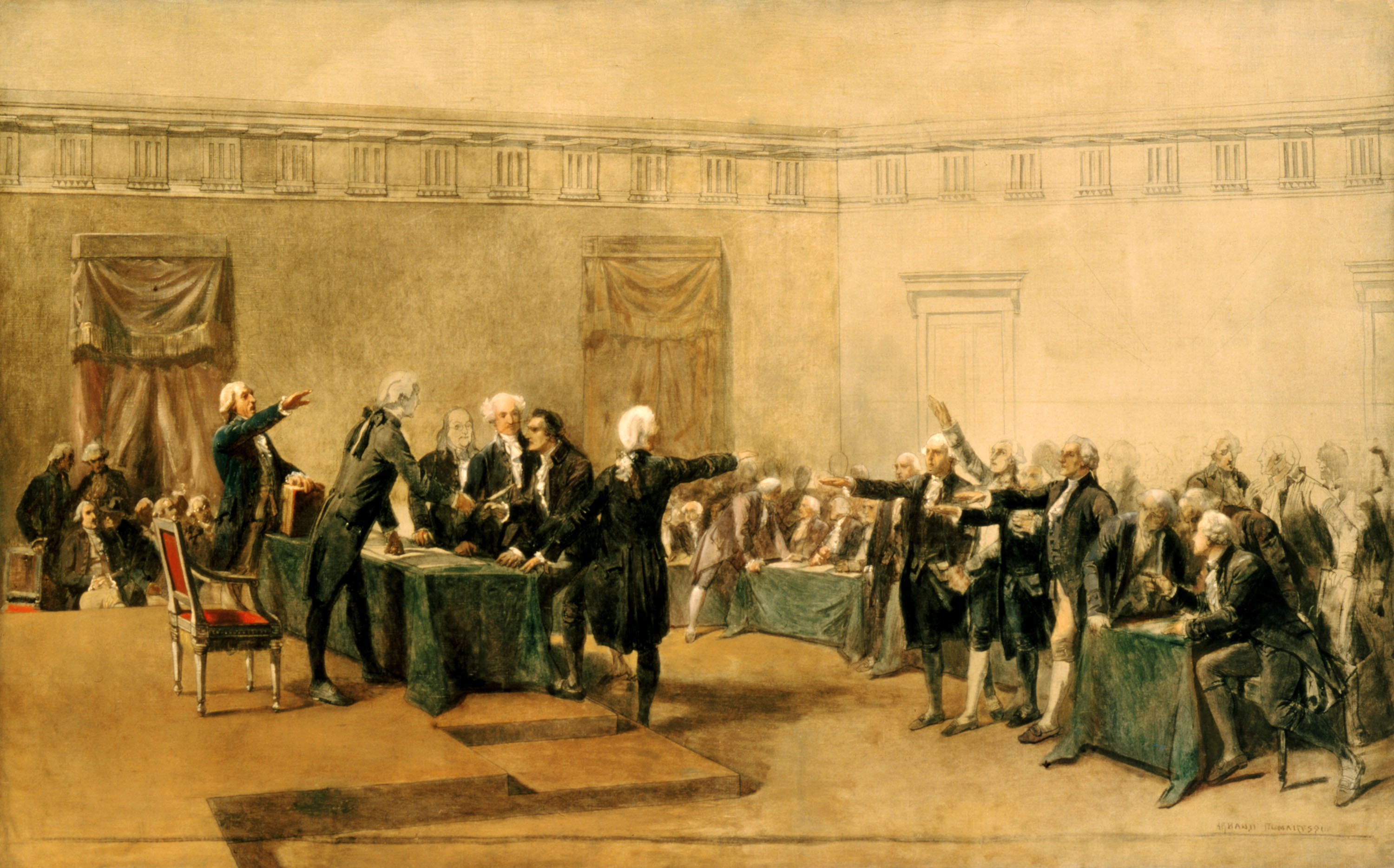Dollars to Donuts

Not a week after his election, Edward Durr is already a legend.
Edward Durr, a truck driver for a furniture company in southern New Jersey, was denied a concealed carry permit despite having a clean record. He decided to run for the state senate, challenging long-time Senate President Democrat Steve Sweeney, famous for running record-setting expensive races. Sweeney, the second-most powerful official in New Jersey, spent about $600,000 on his 2021 campaign; Durr spent about $2,300, a substantial amount of which went, allegedly, to donuts for campaign volunteers. And Durr won, by 2,000 votes out of about 65,000 cast.
It is a beautiful thing about America that one can act on one’s resentments so productively. George Washington’s alienation from the British began with being denied a commission in the regular British army despite his distinguished service in the French and Indian War; Ben Franklin’s began with certain business complaints. Ed Durr wanted to carry a gun, and found it annoying that New Jersey’s elites made it so hard for him to do so.
Sweeney’s loss is hardly the only case of a powerful legislative leader being defeated in a populist upswell. House Speaker Tom Foley lost his seat in the 1994 Republican Revolution election. Democratic Caucus Chairman Joe Crowley was famously defeated by newcomer Alexandria Ocasio-Cortez in the 2018 Democratic primary, and House Majority Leader Eric Cantor lost his primary election to David Brat in 2014.
Durr may not last more than four years as a state senator, but his victory does more than repeat a quintessential American political story. It reflects one of the basic elements of our Constitutional order—that representatives are responsible not to the entire body politic, but to the voters who elected them.
In his magisterial book, The Ideological Origins of the American Revolution, the late historian Bernard Bailyn lists the idea of representation as one of the four critical intellectual conflicts between the colonies and Britain.
Parliament in the fifteenth and sixteenth centuries consisted of representatives of localities, who were frequently sent to Parliament with very strict instructions. They were expected to represent the interests of their localities, and to stick to those instructions. Eventually the idea of “virtual” representation replaced this. Representatives met and debated in order to determine what was best for the whole nation, not to battle among their parochial interests, and they were no longer considered bound by such instructions.
The British defended the arrangement on the grounds that 90 percent of the British didn’t vote for Parliament, but were represented there, anyway, and that the colonies were in this respect no different from those Britons. As subjects of the empire, their interests were taken into account as much as anyone else who was disenfranchised.
But early on, the colonies had reverted to the earlier idea of representation. Localities were, in Bailyn’s words, “largely autonomous,” and reluctant to delegate power to a central colonial government. As a result, colonial legislatures tended to be argumentative and fractious, which served to protect the liberties of the localities and the colonists.
The problem with “virtual representation,” as Americans saw it, was that while in Britain, everyone had roughly the same interests and would suffer the same consequences, nobody in Parliament would share the burdens of any tax or duty placed on Americans or their commerce.
Having decided that virtual representation was, at heart, no representation at all, it was a short step to the resurrection of the idea of “continuous consent,” which holds citizens are not bound by laws that we haven’t given our consent to (either directly or by our representatives). That consent isn’t only established at the time of the adoption of the Constitution or new institutions, but must be granted continuously. Clearly, this only works as long as the representatives see themselves as reflective of the people who sent them to the legislature.
Durr effectively used these themes against Sweeney, listing destructive policies undertaken by New Jersey Governor Murphy that Sweeney hadn’t objected to, especially with respect to Murphy’s handling of the Wuhan coronavirus.
Senate President is, by its nature, a job that balances competing interests to find what’s best for the state as a whole, or for the statewide party; it forms coalitions, seeks to horse-trade one group against another. It may even encourage representatives to vote against the interests of their constituents on the promise of getting something else for them later. To that degree, not only may the Senate President may fail to represent his district, he may corrupt other senators into abandoning theirs. It is a job that by its nature is at odds with the American conception of representation.
As president of the state senate, Steve Sweeney shifted his allegiance from the needs of his constituents to the demands of statewide party politics. More than that, if re-elected, it was clear that Sweeney would pay no price for having supported Murphy in his destructive policies, another violation of the American idea of representation. The only way, Durr was saying, to hold Sweeney strictly accountable for his misuse of power was to defeat him for re-election.
In Britain, even today, people vote for the party more than the candidate, and the party assigns up-and-comers to distant constituencies for election to Parliament. But the United States preserves the principle that the people’s representatives must serve the people first. So it is always refreshing and somewhat glorious when we see the people cast out some pompous leader who’s forgotten who’s the boss.
The American Mind presents a range of perspectives. Views are writers’ own and do not necessarily represent those of The Claremont Institute.
The American Mind is a publication of the Claremont Institute, a non-profit 501(c)(3) organization, dedicated to restoring the principles of the American Founding to their rightful, preeminent authority in our national life. Interested in supporting our work? Gifts to the Claremont Institute are tax-deductible.
A look at the data
The Constitution provides for election crises—and its provisions favor Trump.



